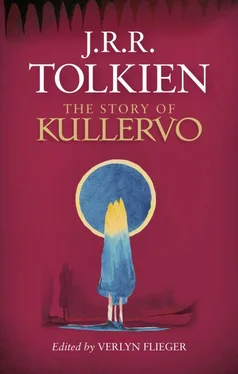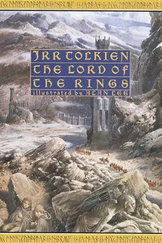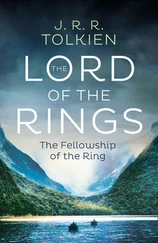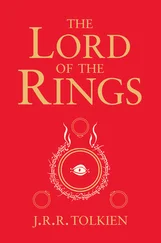Ahti and his wife Vellamo dwell in the watersand there are a thousand new and quaint characters for acquaintance [ — ] Pakkanen the frost, Lempo the god of evil, Kankahatar the goddess of weaving — but a catalogue does not I am afraid inspire the unintroduced and bores the others. The division between the offspring of nymphs and sprites — you cannot really call them gods it is much too Olympic — and the human characters is hardly clearly drawn at all. Väinämöinen, most human of liars, most versatile and hardy of patriarchs, who is the central figure, is the son of the Wind and of Ilmatar (daughter of the Air). Kullervo most tragic of peasant boys is but two generations from a swan.
I give you just this jumble of gods great and small to give some impression of the delightful atmosphere into which you plunge in the Kalevala — in case some have never plunged. If you are not of this temperament — or think you are not designed for getting on well with these divine personages, I assure you they behave most charmingly, and all obey the great Rule of the Game in the Kalevala which is to tell at least three lies before imparting any accurate information however trivial. It had become I think a kind of formula of polite behaviour, for no one seems to believe you until your fourth statement (which you modestly preface with ‘all the truth I now will tell you, though at first I lied a little’[)].
V
So much for religion, if you can call it such, and the imaginary background. The real scenery of the poems, the place of most of its action is Suomi the Marshland: Finnland [ sic ] as we call it or as the Finns often call it the Land of Ten Thousand Lakes. Short of going there I imagine one could scarcely get a better picture of the land than the Kalevala gives (of the land a century ago at any rate, if not of modern progress): it is instinct with love of it: of its bogs and wide marshes in which stand kind of islands formed by rising ground as by hills topped with trees perhaps. The bogs are always before you or beside you and a worsted or outwitted hero is always thrown into one. One sees the lakes and reed-fenced flats with slow rivers: the perpetual fishing: the pile-built houses — and then in winter the land covered with sleighs and men faring over quick and firm alike on snow-shoes.
Juniper, Pine, Fir, aspen, birch, scarce the oak, seldom any other tree, are continually mentioned; and whatever they be nowadays in Finland the bear and wolf are persons of great importance in the ‘Kalevala’ and many sub-arctic animals besides which we do not know in Britain.
The customs are all strange and the colours: the pleasures and the dangers different: Cold on the whole is regarded with the greatest horror, and perpetual steaming hot baths are one of the greatest daily features. The Sauna or bath-house (a quite separate and elaborate building affixed to all respectable homesteads) has I believe from time immemorial been a charact[eristic] of Finnish dwellings. They take these hot and often.
Society is composed of prosperous households and scattered villages; the poems deal with the highest life but that is only with the life of the richer farmers separated a little from the village. Nothing causes more violent anger to any of the heroes than for his wife to demean herself by going to talk ‘down in the village’. It reflects a quiet and moderately contented people but shorn of all the higher and more majestic aspects of national life or tradition: they are governed from above by an alien power. Rarely does such a word as king come in: there is no courtly grandeur, no castles (where they are mentioned it is often mere bad translation).
Patriarchs, stout yeomen with white beards are the most majestic figures to be seen (when their wife is not there). The power of mothers is the most arresting characteristic. Even old Väinämöinen consults his mother on most occasions of difficulty: this tying to the apron-strings goes on even after death; and instructions are issued occasionally from the grave. The housewife’s opinion is universally put first. The feelings towards mothers and sisters are far the most genuine and deep and powerful throughout. A confirmed villain of loose morals and wife-beating propensities as the lively Lemminkainen (as he is always called) shows only his best most and affectionate feelings for his mother. The great tragedy of Kullervo (the reckless peasant boy) is one of brother and sister.
Beyond Finland we are often carried in sleighs or boats, or by more swift and magic means, to Pohja, a mirky misty northland country, sometimes evidently thought of as Lappland, more often it is no one seems clear where, whence magic comes and all manner of marvels; where Luohi [ sic ] dwells who hid the Sun and moon. Sweden, the Lapps, Estonia are often mentioned: Saxony (which is our present enemy) rarely and distantly. Russia our ally not often and usually unpleasantly; of a heartless virago of a wife it is said ‘all estranged is now thy brother and his wife is like a Russian’; and of the most desperate and miserable life it is said to be ‘as a prisoner lives in Russia only that the jail is wanting’.
VI
I have now tried to suggest without any detailing of plot or retailing of tit-bits to hint at the style and quality of the Kalevala, the Land of Heroes. Its style of course largely depends on all these beliefs and social characteristics I have talked of: there are however some very curious tricks[?] of a more accidental and individual character which so colour the whole that they seem worth mentioning before I cease from my meandering discourse.
There is the curious thing I should like to call ‘super-adding’ by which often a comparison as even after a statement the next line contains a great enlargement of it, often with reckless alteration of detail or of fact: colours, metals, names are piled up not for their distinct representation of ideas so much as just for the emotional effect. There is a strange and often effectively lavish use of the words gold and silver, and honey, which are strewn up and down the lines. Colours are rarer; rather do we get gold and silver, moonlight and sunlight, an intense delight in both of which is frequently breaking forth.
There are many such details as these; the incantations, or prayers of deprecation are more essential; they perpetually recur in the presence of any evil or evil feared, and vary from five lines to five hundred, which is the length of the splendid ‘Kine-song’ of Ilmarinen’s wife; while most delightful too are ‘songs of origin’ — you have only got to know the accurate detailed history of the origin birth and ancestry of anyone (I don’t say any thing because there is practically no such distinction for the Kalevala) to have the power to stop the evil and cure the damage he has done or otherwise deal with him. The songs of the ‘Origin of Iron’ and the ‘Origin of Beer’ are the most delightful.
To conclude — although it is clear that to our artificial rather over-selfconscious modern taste, a lot of cheap smiles can be got out of these poems (above all out of a bad or mediocre translation) — yet that is not the attitude in which I wish to put them before you. There is a certain humour (in conversation between characters and so forth) which it is justifiable to smile at, but it is really to incur laughter for [our] own weakness, our own dulled vision, as of old age, if we laugh too loftily at the simplicity of the balder passages of the Land of Heroes: unless indeed we laugh for pleasure at the finding of something so fresh and delightful.
But there are passages which are not only entertaining stories of magic and adventure, quaint myths, or legend; but which are truly lyrical and delightful even in translation, and this high poetical feeling is continually occurring in lines, or couplets, or numbers of lines up and down the Runos but so unlevel as to make purple passage quot[ation] useless. The episodes too and situations are by no means inferior (often vastly superior) to the ballads of much more famous countries than Finland. We are dealing with a popular poetry: overburdened with no technique; unconscious and uneven.
Читать дальше












